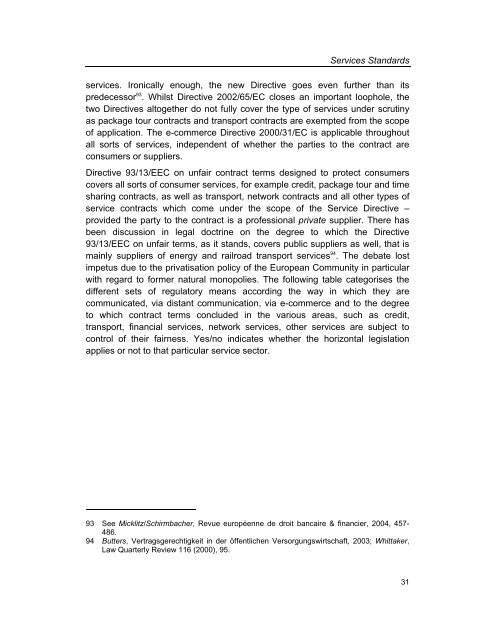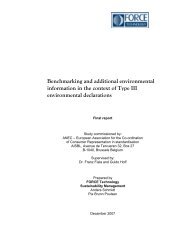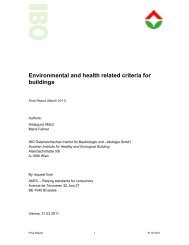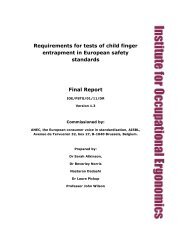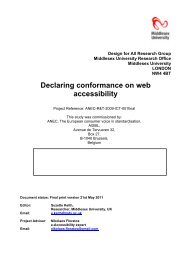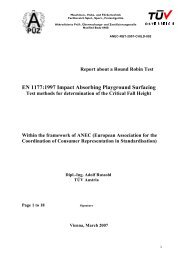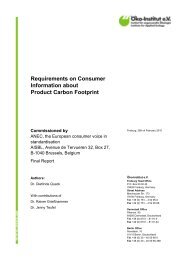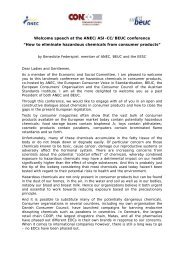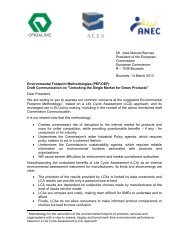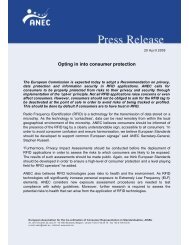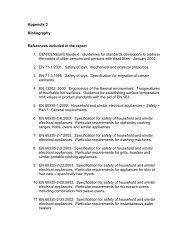Services Standards: Defining the Core Consumer Elements ... - ANEC
Services Standards: Defining the Core Consumer Elements ... - ANEC
Services Standards: Defining the Core Consumer Elements ... - ANEC
You also want an ePaper? Increase the reach of your titles
YUMPU automatically turns print PDFs into web optimized ePapers that Google loves.
<strong>Services</strong> <strong>Standards</strong><br />
services. Ironically enough, <strong>the</strong> new Directive goes even fur<strong>the</strong>r than its<br />
predecessor 93 . Whilst Directive 2002/65/EC closes an important loophole, <strong>the</strong><br />
two Directives altoge<strong>the</strong>r do not fully cover <strong>the</strong> type of services under scrutiny<br />
as package tour contracts and transport contracts are exempted from <strong>the</strong> scope<br />
of application. The e-commerce Directive 2000/31/EC is applicable throughout<br />
all sorts of services, independent of whe<strong>the</strong>r <strong>the</strong> parties to <strong>the</strong> contract are<br />
consumers or suppliers.<br />
Directive 93/13/EEC on unfair contract terms designed to protect consumers<br />
covers all sorts of consumer services, for example credit, package tour and time<br />
sharing contracts, as well as transport, network contracts and all o<strong>the</strong>r types of<br />
service contracts which come under <strong>the</strong> scope of <strong>the</strong> Service Directive –<br />
provided <strong>the</strong> party to <strong>the</strong> contract is a professional private supplier. There has<br />
been discussion in legal doctrine on <strong>the</strong> degree to which <strong>the</strong> Directive<br />
93/13/EEC on unfair terms, as it stands, covers public suppliers as well, that is<br />
mainly suppliers of energy and railroad transport services 94 . The debate lost<br />
impetus due to <strong>the</strong> privatisation policy of <strong>the</strong> European Community in particular<br />
with regard to former natural monopolies. The following table categorises <strong>the</strong><br />
different sets of regulatory means according <strong>the</strong> way in which <strong>the</strong>y are<br />
communicated, via distant communication, via e-commerce and to <strong>the</strong> degree<br />
to which contract terms concluded in <strong>the</strong> various areas, such as credit,<br />
transport, financial services, network services, o<strong>the</strong>r services are subject to<br />
control of <strong>the</strong>ir fairness. Yes/no indicates whe<strong>the</strong>r <strong>the</strong> horizontal legislation<br />
applies or not to that particular service sector.<br />
93 See Micklitz/Schirmbacher, Revue européenne de droit bancaire & financier, 2004, 457-<br />
486.<br />
94 Butters, Vertragsgerechtigkeit in der öffentlichen Versorgungswirtschaft, 2003; Whittaker,<br />
Law Quarterly Review 116 (2000), 95.<br />
31


